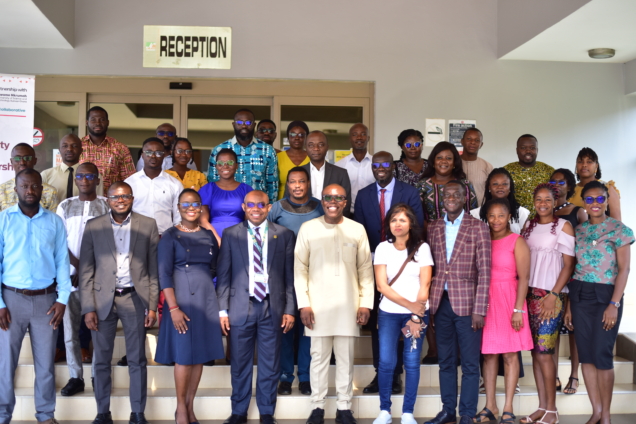The Pro Vice-Chancellor of the Kwame Nkrumah University of Science and Technology, Prof. Ellis Owusu-Dabo has expressed concerns about the poor state of orthodox medical practice in Ghana.
He believes the forcing of people into the health sector has resulted in substandard health delivery.
Prof. Owusu-Dabo who is also the principal investigator of the Mastercard Foundation Africa Higher Education Health Collaborative said this at the opening ceremony of the short course in community health entrepreneurship by the Collaborative in Kumasi.
“The already known traditional area in health which is known as orthodox medicine or medical practice is suffering in this country. And many people who have gotten into our profession were perhaps forced into the profession.
“We want a doctor, we want a nurse, we want this, and we want that. The consequences of these actions and the ramification thereof I promise you if we don’t change we are going to be seeing a lot of medicolegal issues in this country,” he said.
He also mentioned that the medical profession is losing what characterizes it as a noble profession.
“When we used to call the health profession a noble profession there were a lot of several things that characterized he health profession.
“Some of us have bleeding hearts because we are losing all those attributes that characterize the so called noble profession.
“Whether you are biomedical scientist, a nurse, a doctor or a physician assistant you apply yourself dutifully to certain attributes; those attributes I daresay we are losing them,” he said.
The community health entrepreneurship is a short course organized by the Mastercard Foundation Africa Higher Education Health Collaborative in partnership with the Kwame Nkrumah University of Science and Technology.
This course will equip 20 selected community health personnel from across the country with requisite skills in entrepreneurship to stem the brain drain menace.
The programme is under the health employment pillar of the MasterCard Foundation Africa Higher Education Health Collaborative.
The health employment pillar aims to expand and improve current capacities to train primary healthcare workers.
Provost of the College of Health Sciences, Prof. Christian Agyare mentioned that “there is huge opportunity for building and scaling human capital within the sector. To meet current market demands, health workers require differentiated competencies including tangible skills that can be marketed to prospective employers but also encourage self-employment when feasible.”
Latest Stories
-
Alan Kyerematen’s ‘Brighter Future for Health Professionals’ in Ghana Revealed in Bono
5 mins -
NPP will ensure a safer cleaner and greener environment – Dr Kokofu
13 mins -
2024 Election: Police to deal with individuals who will cause trouble – IGP
14 mins -
Seychelles President’s visit rekindles historical and diplomatic ties with Ghana
20 mins -
Election 2024: EC destroys defective ballot papers for Ahafo and Volta regions
30 mins -
2024 Election: I am sad EC disqualified me, but I endorse CPP’s candidate – PNP’s Nabla
56 mins -
I want to build a modern, inclusive country anchored by systems and data – Bawumia to CSOs
57 mins -
Miss Health Ghana 2024: Kujori Esther Cachana crowned new Health Ambassador
1 hour -
Livestream: The manifesto debate on WASH and climate change
1 hour -
Alan Kyerematen saddened by NDC and NPP’s neglect of Krofrom Market in the Ashanti Region
1 hour -
CSIR Executive Director urges farmers to adopt technology for improved farming
1 hour -
Football Impact Africa’s Ghetto Love Initiative inspires change in Teshie
2 hours -
Peter Toobu calls for tighter border security over uncovered weapons at Tema Port
2 hours -
Gov’t has failed its commitment to IPPs – Ablakwa
2 hours -
Sell Chrome to end search monopoly, Google told
2 hours

